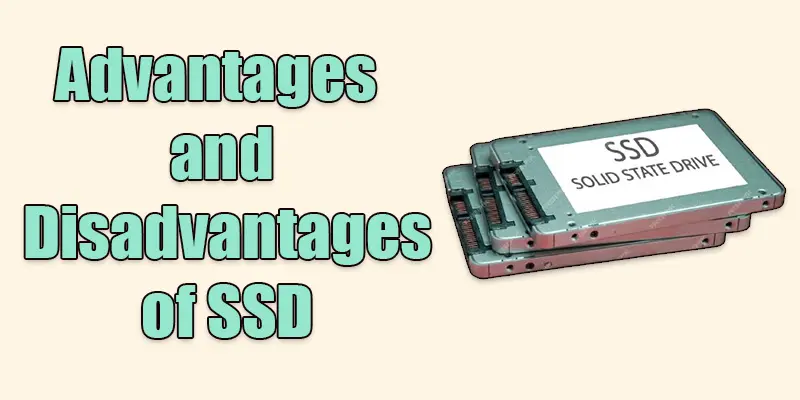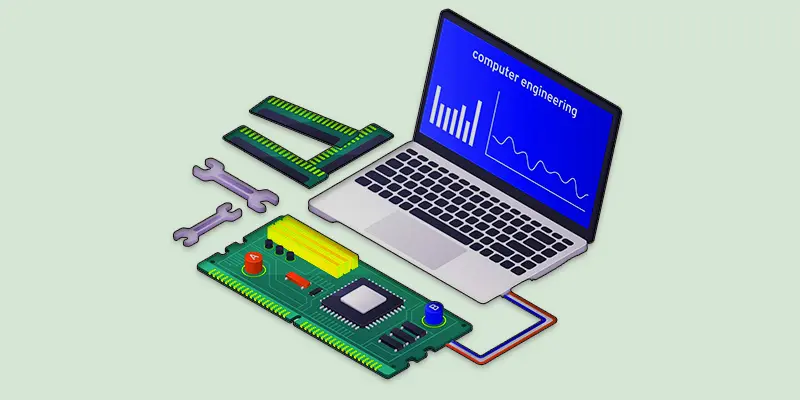SSD Benefits and Drawbacks | Everything You Need to Know
Published: 15 Mar 2025
Advantages and Disadvantages of SSD
SSDs are faster, more reliable, and energy-efficient, making them a popular choice over HDDs. But are they truly the best option for everyone? Many users struggle with slow boot times and system crashes, hoping an SSD upgrade will solve their problems. While SSDs offer great speed and durability, they also come with higher costs and limited lifespan—so are they worth it? Let’s explore the SSD advantages and disadvantages to help you decide.
SSD Advantages
Discover the top reasons why upgrading your storage can make your device faster, quieter, and more reliable.

- Faster speed
- Better durability
- Energy efficiency
- Silent operation
- Lightweight design
- Less heat generation
Faster Speed
SSDs load files and programs much faster than old storage drives. Your computer starts up in seconds, and apps run smoothly without delays. This makes everything feel quicker and more responsive.
Better Durability
SSDs have no moving parts, so they are less likely to break if dropped or shaken. They can handle bumps and shocks better than old storage drives. This makes them more reliable for laptops and portable devices.
Energy Efficiency
SSDs use less power than old storage drives, which helps your device last longer on battery. This makes them great for laptops and other portable devices. Less power use also means lower electricity bills.
Silent Operation
SSDs make no noise because they have no moving parts. Unlike old storage drives that spin and click, SSDs run silently. This makes them perfect for quiet work or gaming.
Lightweight Design
SSDs are smaller and lighter than old storage drives. This makes laptops and other devices easier to carry. Their compact size also allows for thinner and more modern designs.
Less Heat Generation
SSDs produce less heat because they have no spinning parts. This helps keep your device cooler and reduces the need for extra cooling. A cooler system also means better performance and a longer lifespan.

SSD Disadvantages
While SSDs offer great speed and reliability, they also have some drawbacks that are important to consider.
- Higher cost
- Limited lifespan
- Storage capacity limits
- Performance drop over time
- Data recovery challenges
- Compatibility issues
Higher Cost
SSDs are more expensive than old storage drives with the same space. This makes them less budget-friendly, especially for larger storage needs. However, prices are slowly dropping over time.
Limited Lifespan
SSDs wear out over time because they have a limited number of writes. Frequent data writing can shorten their lifespan. However, most SSDs last for many years with normal use.
Storage Capacity Limits
SSDs usually have smaller storage sizes compared to old drives at the same price. High-capacity SSDs exist, but they are expensive. This can be a problem for users who need a lot of space for files, games, or videos.
Performance Drop Over Time
SSDs can slow down over time as they fill up with data. Frequent writing and deleting can affect performance. Regular maintenance, like freeing up space, can help keep them fast.
Data Recovery Challenges
Recovering lost data from an SSD is difficult and sometimes impossible. Unlike old storage drives, SSDs use special methods to store data, making recovery harder. This is why regular backups are important.
Compatibility Issues
Some older computers may not support certain SSD types. Newer SSDs, like NVMe, need specific slots to work. Checking your device’s compatibility before upgrading is important.

Conclusion About Benefits of SSD
The advantages and disadvantages of SSDs show that they offer speed, durability, and efficiency but come at a higher cost. If you want a faster and more reliable storage solution, an SSD is the best choice, especially for gaming or professional work. Ready to upgrade? Explore SSD options today.
FAQS
It depends on your use. For basic tasks, 256GB is enough. For gaming or work, go for 512GB or 1TB.
SSDs make computers faster, reduce load times, and improve performance. They also last longer than HDDs.
Social Security Disability Insurance (SSDI) benefits are sometimes taxable if your income is above a certain limit.
Yes, SSDs are faster, quieter, and more durable than HDDs, but they cost more.
SSDs speed up your computer, making programs load faster and improving overall performance.
SSDs are best for fast booting, gaming, video editing, and overall system speed improvement.
You can check your SSDI benefits by logging into your Social Security account online or calling the SSA office.
The main use of an SSD is to store data while making your computer run faster and more efficiently.

- Be Respectful
- Stay Relevant
- Stay Positive
- True Feedback
- Encourage Discussion
- Avoid Spamming
- No Fake News
- Don't Copy-Paste
- No Personal Attacks

- Be Respectful
- Stay Relevant
- Stay Positive
- True Feedback
- Encourage Discussion
- Avoid Spamming
- No Fake News
- Don't Copy-Paste
- No Personal Attacks





